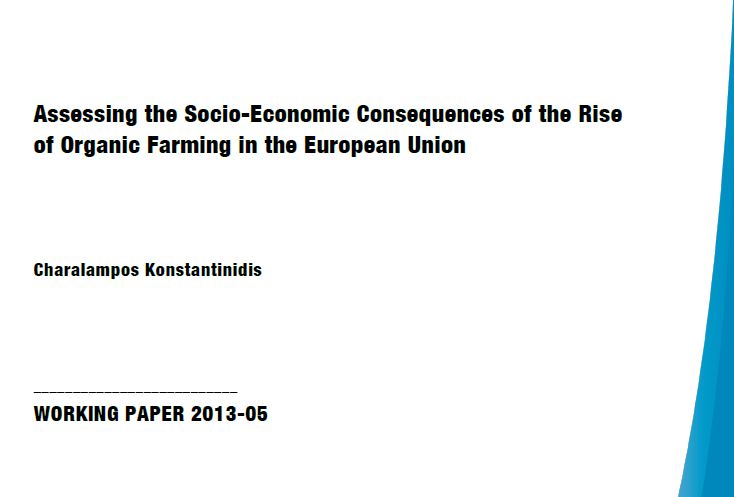Assessing the Socio-Economic Consequences of the Rise of Organic Farming in the European Union
Although organic farming is considered the poster child of rural development in Europe, there is little empirical evidence assessing its success in achieving the ambitious socio-economic objectives of support for small farms and employment generation that it is purported to assist. I present empirical evidence from the growth of organic farming in Europe over the past two decades that questions the highly optimistic claims of policy makers. I show that the rise in a region’s share of agricultural land farmed under organic methods is associated with higher average farm size. Additionally organic farms in Europe display larger average sizes and lower rates of labor intensity than their conventional counterparts. Since the agricultural labor intensity in a region (the labor application per hectare) is not positively related with the share of organic area, the efficacy of organic farms to generate employment is set in doubt. I assert that this these developments point to the “conventionalization” of organic farming and present a serious challenge to European policy-making. Finally I suggest that the success of organic farming should be evaluated by the numbers of organic farmers, rather than by area covered, as has been the predominant approach so far.
